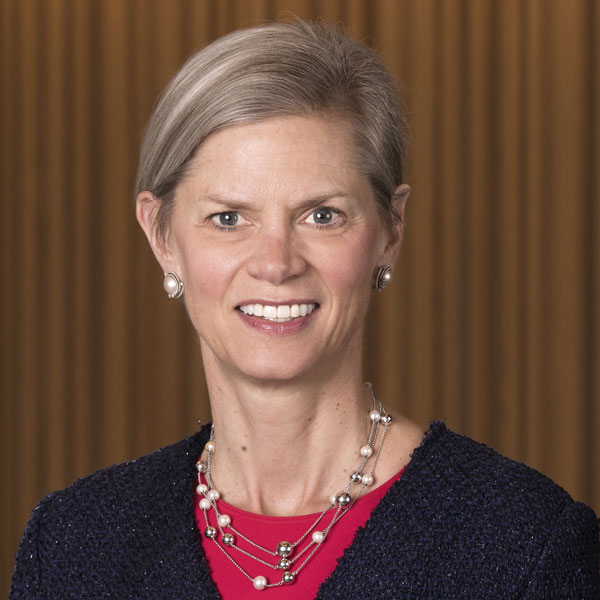Demographics & Culture
Our readers have spoken. A story we published in January featuring 10 books selected by Capital Group investment professionals has been one of our most popular articles so far this year.
Since it appears many of you are avid readers, we decided to reprise this topic and ask a group of our portfolio managers for their latest book selections. So here you have it — just in time for vacation — six books for summer reading.
1. Deep Work: Rules for Focused Success in a Distracted World
Who doesn’t feel distracted in a world dominated by email, text messages, laptops and smart phones? When she needs to concentrate, Jody Jonsson — a portfolio manager with New Perspective Fund® — likes to re-read Deep Work, the 2016 book by Georgetown University professor Cal Newport.
“It’s not a new book, but it’s something I enjoy revisiting when I really need to focus on my work, both creatively and thoughtfully,” she says. “So often we are lost in emails and texts and other interruptions. We can’t get our minds to focus. This book includes a lot of excellent advice for changing your work habits, including how to efficiently interact with your phone. It has really helped me to perform at a higher level.”

2024 Outlook webinar
Thursday, December 14
11 AM PT/2 PM PT
2. Superforecasting: The Art and Science of Prediction
Wouldn’t it be nice to know the future? With that in mind, American Balanced Fund® portfolio manager Jeff Lager chose Superforecasting by Philip Tetlock, a professor at the University of Pennsylvania’s Wharton School. In this 2015 book, Tetlock and coauthor Dan Gardner take a deep dive into the skills required to make accurate predictions, following a group of so-called “superforecasters.”
Telling the future, it turns out, has less to do with a crystal ball than it does with the critical skills of gathering evidence from diverse sources, thinking in terms of probabilities, admitting errors and changing course when necessary.
“We were fortunate enough to have Phil come speak to us at a recent Capital Group investment retreat,” Lager recalls. “I think his insights can help us all do a better job of trying to predict an uncertain future just a little bit better.”
With less time to read in a post-pandemic world, book selection is key

Sources: Capital Group, U.S. Bureau of Labor Statistics (BLS.) Figures reflect the average daily time spent reading in the United States (ages 15 and older). *Figures for 2020 are missing due to data collection issues, and the number above reflects the blended average from a separate BLS series that breaks out time spent reading on weekends/holidays and time spent reading on weekdays. Data is the latest available as of June 30, 2023.
3. The Art of Execution
Even the best investors make mistakes, and this 2015 book is proof of that. The key to overcoming those mistakes is how you deal with losing positions in a high-conviction investment portfolio, says Martin Jacobs, a portfolio manager with The Investment Company of America®. The book, written by fund-of-funds manager Lee Freeman-Shor, follows a group of very successful money managers. It turns out that nearly half of the group’s ideas didn’t do so well. The author reaches some interesting conclusions about that.
“It’s not whether you’re right or wrong that’s important,” Jacobs summarizes from the book. “It’s about how much money you make when you’re right, and how much money you lose when you’re wrong. Your decisions around weighting and conviction are paramount.”
The book argues for an aggressive sell discipline — or ruthlessly cutting your losses when an investment is failing. Freeman-Shor refers to these investors as “assassins” and, based on his findings, they produce some of the best results.
“One of the hardest things to do is walk away from an investment that is no longer working,” Jacobs says. “You must be able to pivot when the long-term thesis is broken.”
4. Outlive: The Science and Art of Longevity
Chris Buchbinder, a portfolio manager with The Growth Fund of America®, went outside the investment box to choose Outlive by Canadian physician Peter Attia. The book, published in March, challenges conventional medical thinking on aging and outlines a new approach to preventing chronic diseases. Dr. Attia’s advice includes nutritional changes, techniques for achieving better sleep, and effective ways to address emotional and mental health.
“He provides a framework for thinking about your health with a risk management mindset,” Buchbinder explains. “I find it fascinating, and I'm probably going to change a few aspects of my own lifestyle in ways that are consistent with the book.”
5. Playing Big: Practical Wisdom for Women Who Want to Speak Up, Create, and Lead
Cheryl Frank, a portfolio manager with American Mutual Fund®, is such a fan of Playing Big that she has given many copies as gifts, even to her male colleagues. The 2014 book, written by columnist and personal coach Tara Mohr, advises women on how to play a bigger role at work and in their personal lives by taking bold action and overcoming self-doubt.
“It’s a terrific book about understanding how to recognize the opportunities in this world and leaning into them in an authentic way,” states Frank. “It’s written for women, but even some of my male colleagues who have read it said it changed the way they think about their own families.”
6. The Brain That Changes Itself: Stories of Personal Triumph from the Frontiers of Brain Science
Martin Romo’s selection almost sounds like a science fiction novel, but The Brain That Changes Itself is actually a ground-breaking 2007 book about the science of neuroplasticity by psychiatrist Norman Doidge. The author disputes the conventional view that the human brain is immutable and, instead, argues that the brain can and does transform over time.
“The central premise is that your brain is a muscle and that you can build in patterns, imbalances and biases,” says Romo, a portfolio manager for The Growth Fund of America. “It’s much more plastic than you would think.”
The book includes amazing stories about people who have overcome paralysis, recovered from strokes, and even one woman who was born with half a brain that rewired itself to work as a fully intact brain.
“The message I take away from this book is to stay flexible and remain open to new paradigms,” Romo adds. “I think it’s a really important book, and I have incorporated some of the lessons into my own life.”
Our latest insights
-
-
Emerging Markets
-
Global Equities
-
Economic Indicators
-
RELATED INSIGHTS
-
Demographics & Culture
-
U.S. Equities
-
U.S. Equities
Never miss an insight
The Capital Ideas newsletter delivers weekly insights straight to your inbox.
 Jody Jonsson
Jody Jonsson
 Jeff Lager
Jeff Lager
 Martin Jacobs
Martin Jacobs